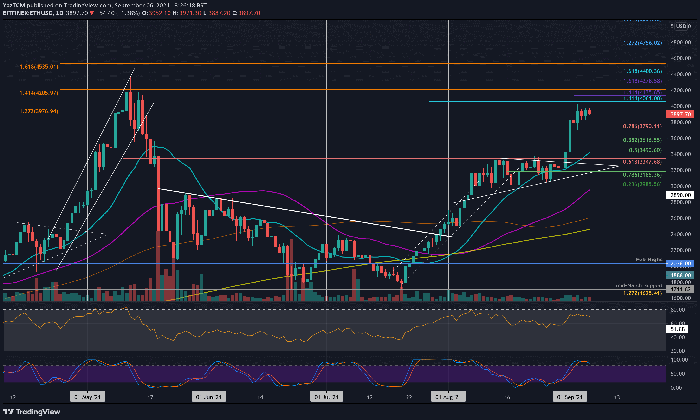The Ripple SEC lawsuit has become a pivotal case in the crypto space, signaling a potential turning point for cryptocurrency regulations in the United States. With the recent announcement that the SEC has dropped its appeal, Ripple can now focus on moving forward—an outcome that may greatly influence the entire cryptocurrency ecosystem. Industry leaders are optimistic, suggesting that this resolution could pave the way for greater clarity in SEC cryptocurrency regulations and foster a more robust environment for innovation. As experts analyze the Ripple case outcomes, they express hope that this event marks the beginning of a new era for digital assets, leading to increased trust and legitimacy. Ultimately, the conclusion of this prolonged legal battle raises questions about the future of crypto and its regulatory landscape.
The legal dispute between Ripple and the U.S. Securities and Exchange Commission (SEC) symbolizes a critical moment in the evolution of digital currency governance. As Ripple emerges victorious, having resolved its long-standing challenges with the regulatory body, the implications for cryptocurrency as a whole could be significant. Many analysts believe this resolution will usher in an era of enhanced cryptocurrency regulatory clarity, essential for inspiring confidence among institutional investors. Discussions surrounding the potential ripple effects of this lawsuit suggest that we could be on the brink of transformative changes in market dynamics. Exploring the broader ramifications of the Ripple case may offer a glimpse into the future trajectories of digital currencies and regulatory frameworks.
Ripple SEC Lawsuit: A Definitive Turning Point
The Ripple SEC lawsuit has undoubtedly been one of the most significant legal battles in the cryptocurrency space. With the SEC dropping its appeal, many experts see this as a landmark moment that could redefine not just Ripple’s future but the entire landscape of digital assets in the U.S. This outcome signals a shift towards regulatory clarity, which has been a long-standing concern among crypto stakeholders. As Ripple moves forward, we can anticipate that the resulting legal precedents may influence how regulatory frameworks are implemented for other cryptocurrencies.
Brad Garlinghouse’s declaration of victory asserts that this case has ramifications far beyond Ripple. The successful resolution of the lawsuit could encourage other crypto companies to innovate and expand without the looming threat of regulatory overreach. This notion resonates with the understanding that a favorable outcome opens avenues for new applications of blockchain technology, potentially enhancing the credibility of cryptocurrencies in the eyes of institutional investors. Furthermore, the ripple effect of this lawsuit’s conclusion may inspire regulatory bodies to provide clearer guidelines for the entire industry.
The Ripple Case Outcomes: Impacts on Regulatory Frameworks
The outcomes of the Ripple case could significantly influence how SEC cryptocurrency regulations are formulated in the future. With the resolution removing some uncertainties, other digital asset firms might feel empowered to advocate for more favorable regulatory environments. Industry experts argue that the Ripple case outcomes create a precedent that could lead to a more balanced and constructive interaction between crypto firms and regulatory agencies. This newfound regulatory clarity could be the catalyst that spurs innovation and investment, ultimately benefiting the wider crypto ecosystem.
Moreover, the Ripple case outcomes represent an essential learning opportunity for regulatory agencies themselves. Observers have noted that the SEC’s approach to cryptocurrencies has often felt nebulous, leading to hesitance among banks, investment firms, and new ventures. By absorbing the lessons from Ripple’s trial, lawmakers might better understand the importance of creating sensible regulations that protect consumers while fostering innovation. This synthesis of interests could result in frameworks that not only cover Ripple but are relevant to a range of crypto assets in the years to come.
Cryptocurrency Regulatory Clarity: A Necessity for Growth
Achieving cryptocurrency regulatory clarity is critical for the growth and stabilization of the crypto market. The Ripple SEC lawsuit, which stirred a significant amount of uncertainty within the industry, has underscored the necessity for explicit guidelines to cultivate a secure trading environment. Regulatory clarity is essential for reassuring institutional investors, as it establishes a more predictable landscape. Many believe that with transparent policies, companies will be more willing to participate in the crypto market, encouraging innovation and investment flow.
Furthermore, the establishment of clear regulations not only empowers existing firms but also paves the way for new entrants in the digital asset space. As regulations solidify, startups can build their operations with confidence, knowing what limits they must operate within. The anticipation of improved regulatory clarity encourages a more robust cryptocurrency ecosystem, important for its long-term sustainability and appeal to institutional capital. As seen with Ripple’s case outcomes, the sector stands at a crucial juncture, and the resulting framework from this lawsuit could shape the industry’s growth trajectory.
Future of Crypto: Opportunities After the Ripple Case
The conclusion of the Ripple lawsuit heralds a time of renewed optimism regarding the future of crypto. With a strong legal framework now potentially in place, cryptocurrency projects can once again focus on innovation and expansion without the threat of legal ramifications inhibiting their progress. This newfound freedom could lead to a plethora of advancements in technology and applications within blockchain ecosystems. In essence, the future of crypto appears bright, buoyed by the prospects of enhanced regulatory clarity.
Additionally, the positive sentiment following the Ripple case closure might attract more institutional participation. Companies and investors who previously remained on the sidelines due to regulatory uncertainties may now be encouraged to explore crypto investments, recognizing the legitimacy that regulatory clearance brings. The anticipated influx of institutional money could help stabilize prices and spur further advancements in related technologies, establishing a more mature market that can sustain itself amidst potential future challenges.
Impact on US-Based Cryptocurrency Firms
The resolution of the Ripple SEC lawsuit suggests a promising future for U.S.-based cryptocurrency firms. Industry analysts believe that the legal clarity achieved can empower American companies to reclaim leadership positions in the global cryptocurrency infrastructure. As firms like Ripple shift focus towards innovation and product enhancements, their experiences could serve as valuable case studies for fellow U.S. startups, encouraging them to embrace their own growth strategies without fear of litigation.
Moreover, the optimistic projections surrounding U.S.-based firms are enhanced by movements such as Coinbase’s reported acquisition activity. Such advancements signal renewed confidence in the U.S. market, leading many observers to suggest that we may be on the brink of a new era for domestic cryptocurrency firms, one characterized by innovation and collaboration. With heightened regulatory clarity, businesses can thrive by creating new products and services that align with the evolving expectations of both consumers and regulators.
Industry Expert Insights on the Ripple Verdict
Industry experts have weighed in heavily on the implications of the Ripple verdict, with many acknowledging its potential to redefine the landscape of cryptocurrency regulation. Leading voices, like Lingling Jiang from DWF Labs, have expressed hope that this development will serve as a catalyst for much-needed regulatory progress. Jiang’s remarks highlight the importance of fostering institutional trust and expanding innovation in the cryptocurrency space as a result of this legal victory.
In addition to Jiang, other experts echo these sentiments, reinforcing the idea that the Ripple case has shifted the trajectory for future regulatory discussions. They argue that this landmark resolution may prompt regulatory agencies to reevaluate their approaches towards the cryptocurrency market. With the continuation of constructive dialogue, there is great potential for moving toward frameworks that clarify the status of various cryptocurrencies and ultimately benefit the industry as a whole.
Eliminating Uncertainty: Ripple’s Legal Resolve
The legal resolve offered by the Ripple SEC lawsuit’s outcome is set to eliminate much of the uncertainty that has clouded the cryptocurrency landscape for several years. The settlement serves as a reassurance to both current and prospective investors that operations can now take place within a more transparent regulatory environment. This transition from uncertainty to clarity can invigorate investment, encouraging stakeholders to engage with the crypto market more freely.
As uncertainty dissipates, Ripple’s legal victory is indicative of a broader trend that could inspire other jurisdictions to pursue similar regulatory clarity in the cryptocurrency realm. Different countries have grappled with varying degrees of ambiguity over regulations, and Ripple’s outcomes may serve as a benchmark. If this legal resolution fosters a movement towards uniformity in cryptocurrency regulations globally, it could unlock tremendous growth potential across the entire sector.
The Ripple Effect: Future Trends in Cryptocurrency Regulation
The phrase ‘Ripple Effect’ takes on new meaning in the context of cryptocurrency regulation post-Ripple lawsuit. As legal outcomes resonate through the landscape, we could witness a trend where other organizations and regulators reevaluate their policies, inspired by Ripple’s case outcomes. This transformative moment represents an opportunity for a more cohesive approach to cryptocurrency regulations worldwide.
In practical terms, the implications could involve collaborative frameworks which allow regulatory agencies to share best practices and approaches, fostering a global dialogue around cryptocurrency governance. As regulators worldwide observe the impact of the Ripple case, we might see a shift towards harmonized regulations that provide clarity and security across borders, thus advancing the entire industry in meaningful ways.
Conclusion: A New Era for Cryptocurrency Post-Ripple
In summary, the conclusion of the Ripple SEC lawsuit marks the beginning of a new era for the cryptocurrency industry. The resulting clarity surrounding regulatory frameworks may encourage a wave of innovation, investment, and institutional engagement. Ripple’s experience during this legal struggle can serve as a guide for other firms navigating regulatory waters, empowering them to advocate for their interests.
As we look ahead to the future of cryptocurrency, analysts remain hopeful that the resolution will signal a broader acceptance of digital assets in mainstream finance and commerce. With the potential for more robust cryptocurrencies and clearer regulations on the horizon, the industry stands at a pivotal moment, one that holds promises not only for Ripple but for the entire cryptocurrency ecosystem.
Frequently Asked Questions
What does the Ripple SEC lawsuit closure mean for the future of crypto?
The closure of the Ripple SEC lawsuit marks a pivotal moment for the future of crypto, signaling increased regulatory clarity in the United States. Ripple’s CEO, Brad Garlinghouse, and experts have indicated that this conclusion can foster greater institutional trust and innovation in the cryptocurrency space, benefiting U.S.-based firms and laying groundwork for a more defined regulatory environment.
How did the Ripple lawsuit impact the cryptocurrency regulatory landscape?
The Ripple lawsuit significantly impacted the cryptocurrency regulatory landscape by illustrating how legal outcomes can shape compliance and operational strategies for crypto companies. The resolution is seen as a victory not only for Ripple but for many other crypto firms, as it may pave the way for clearer SEC cryptocurrency regulations that can help propel the industry forward.
What are the potential Ripple case outcomes for other cryptocurrencies?
The outcomes of the Ripple case could set important precedents for other cryptocurrencies facing scrutiny from the SEC. If Ripple’s operations continue without major restrictions post-lawsuit, it may encourage a more lenient approach towards other digital assets and inspire potential reforms in how the SEC regulates cryptocurrencies.
Will the Ripple SEC lawsuit result in increased cryptocurrency regulatory clarity?
Yes, industry experts suggest that the conclusion of the Ripple SEC lawsuit is likely to lead to increased regulatory clarity in the cryptocurrency sector. With Ripple’s legal burdens lifted, the focus can shift towards compliance and innovation, which is essential for fostering a sustainable crypto environment in the U.S.
How might the Ripple case influence future SEC actions against cryptocurrencies?
The Ripple case could influence future SEC actions by providing a framework for how the commission interprets securities laws as they apply to digital currencies. The resolution may discourage the SEC from pursuing overly aggressive actions against other crypto firms, thereby fostering a more cooperative relationship between regulators and the cryptocurrency industry.
What does the resolution of the Ripple SEC lawsuit mean for U.S.-based crypto firms?
The resolution of the Ripple SEC lawsuit is viewed positively for U.S.-based crypto firms, as it signifies a potential shift towards a more favorable regulatory environment. This clarity can empower these firms to innovate more aggressively, reclaiming leadership in the cryptocurrency market and enhancing the infrastructure supporting digital assets.
In what ways can Ripple’s victory affect investor confidence in cryptocurrencies?
Ripple’s victory in its lawsuit against the SEC can enhance investor confidence in cryptocurrencies by demonstrating that regulatory challenges can be successfully navigated. This success may encourage more investments in the crypto space, as it validates the legitimacy of the market and signals a more predictable regulatory future.
What are the implications of Ripple’s lawsuit outcome for cryptocurrency innovation?
The outcome of the Ripple lawsuit could have far-reaching implications for cryptocurrency innovation. With reduced legal uncertainties, firms like Ripple can focus on developing new products and technologies, such as stablecoins, which will likely lead to increased adoption and evolution of the cryptocurrency market.
| Key Point | Details |
|---|---|
| Ripple SEC Lawsuit Conclusion | The SEC dropped its appeal, concluding a four-year legal battle, marking a potential shift in regulatory clarity for cryptocurrency. |
| Financial Impact on Ripple | Ripple is required to pay a $50 million settlement, significantly less than previously ruled amounts, which CEO Garlinghouse termed a victory for the industry. |
| Expert Opinions | Industry experts see this as a watershed moment for cryptocurrency, heralding greater regulatory clarity and confidence in U.S.-based crypto companies’ futures. |
| Innovation and Trust | Experts predict increased trust and innovation in the crypto space, particularly for U.S. firms, allowing them to reclaim leadership in crypto infrastructure. |
Summary
The conclusion of the Ripple SEC lawsuit marks a significant turning point for the future of the crypto industry. With the SEC dropping its appeal and Ripple settling at a much lower amount than initially demanded, this outcome is seen as a victory that paves the way for greater regulatory clarity. Experts believe that this resolution will catalyze innovation and bolster institutional trust in cryptocurrency, particularly among U.S.-based firms positioned to thrive in this newfound legal landscape.
The Ripple SEC lawsuit has emerged as a pivotal chapter in the cryptocurrency landscape, igniting fervent discussions about the future of digital assets. As the controversy winds down, with the SEC dropping its appeal, industry participants are keenly analyzing the Ripple lawsuit impact on regulatory frameworks for cryptocurrencies. Experts suggest that this resolution could usher in much-needed cryptocurrency regulatory clarity, a crucial factor for fostering sustainable growth in the sector. The outcomes of the Ripple case could serve as a benchmark for how regulatory bodies may approach other digital currencies, shaping the overall trajectory of the market. This case not only signals a legal victory for Ripple but also raises important questions about the broader implications for the entire crypto industry in navigating future SEC cryptocurrency regulations.
In recent months, the legal saga surrounding Ripple has captivated the attention of both investors and cryptocurrency advocates alike, marking a significant turning point in the industry’s relationship with regulators. With the conclusion of the Ripple lawsuit, the discussions have shifted towards the potential benefits this outcome could bring, particularly regarding general regulatory practices for blockchain technologies and digital currencies. Analysts posit that the Ripple case’s resolution might inspire a wave of confidence among crypto enterprises, propelling them to innovate and thrive against a backdrop of clearer guidelines. Furthermore, as the focus turns to upcoming developments, the Ripple situation serves as a critical case study, offering insights into how future legal battles might unfold within the ever-evolving landscape of cryptocurrency.















Leave a Reply